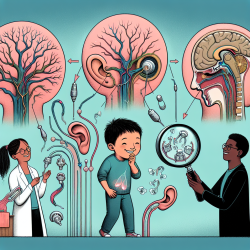Introduction
In the realm of mental health services, the involvement of family and carers can significantly enhance outcomes for service users. The research article "Mental health service engagement with family and carers: what practices are fundamental?" offers valuable insights into the practices that can foster meaningful engagement. This blog aims to guide practitioners in integrating these practices into their work, ultimately improving the quality of care and support for both service users and their families.
The Importance of Family and Carer Engagement
Engaging families and carers in mental health services has been shown to provide substantial benefits, not only for the service user but also for the carers themselves. According to the research, seven core practices have been identified as fundamental to effective engagement. These practices are essential for practitioners aiming to enhance their skills and create positive outcomes for children and families.
Seven Core Practices for Effective Engagement
- Identify and Acknowledge Family and Carers: Recognizing the role of family and carers is the first step in building a collaborative relationship.
- Engage and Communicate: Open and honest communication with family and carers is crucial for understanding their needs and concerns.
- Involve in Planning and Collaboration: Including family and carers in treatment planning ensures a holistic approach to care.
- Assess Needs: Regular assessment of the needs of family members and carers helps in providing tailored support.
- Provide Ongoing Support: Continuous support for family and carers can alleviate the burden and improve their well-being.
- Offer Psycho-education: Educating family and carers about mental health conditions empowers them to support the service user effectively.
- Recommend Referrals: Referring family and carers to additional services can provide them with the necessary resources and support.
Integrating Practices into Your Work
For practitioners, integrating these core practices requires a commitment to continuous learning and adaptation. Here are some steps to consider:
- Regularly review and update your knowledge on family engagement practices.
- Attend workshops and training sessions focused on family and carer involvement.
- Collaborate with colleagues to share experiences and strategies for effective engagement.
- Seek feedback from families and carers to refine your approach.
Conclusion
By embracing these seven core practices, practitioners can significantly enhance their ability to engage families and carers, leading to improved outcomes for service users. The integration of these practices not only benefits the service user but also supports the well-being of their family and carers, creating a more supportive and effective mental health care environment.
To read the original research paper, please follow this link: Mental health service engagement with family and carers: what practices are fundamental?










